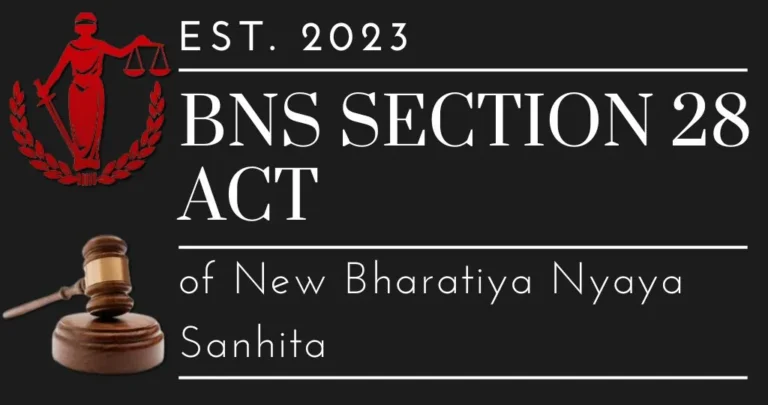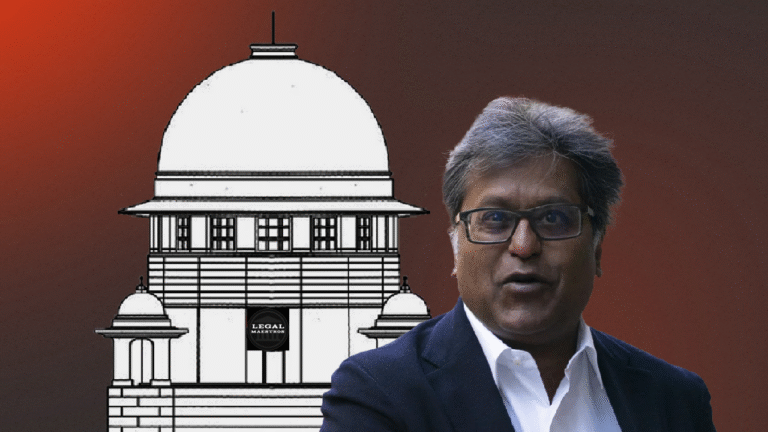
Understanding Section 8 of the Bhartiya Nyaya Sanhita, 2023
The Bhartiya Nyaya Sanhita (BNS), 2023, adds elaborate instructions regarding the imposition of fines and the effects of not paying them. Section 8 deals with situations where a fine is imposed, specifying the amount of fines, imprisonment in case of default of payment, and fine recovery procedures.
Unlimited Fines with Reasonable Limits
Section 8(1) provides that where a law imposes a fine without setting an upper limit, the court may, in its discretion, fix the amount of the fine. But this fine should not be excessive, with a view to ensuring fairness and proportionality to the offense.
Illustration: Where a person is convicted under a law requiring a fine but not specifying a ceiling, the court may impose a fine in terms of the seriousness of the offense and the ability of the offender to pay, making it considerable but not excessively heavy.
For More Updates & Regular Notes Join Our Whats App Group (https://chat.whatsapp.com/DkucckgAEJbCtXwXr2yIt0) and Telegram Group ( https://t.me/legalmaestroeducators ) contact@legalmaestros.com.
For More Updates & Regular Notes Join Our Whats App Group (https://chat.whatsapp.com/DkucckgAEJbCtXwXr2yIt0) and Telegram Group ( https://t.me/legalmaestroeducators )
Imprisonment for Non-Payment of Fines
Section 8(2) provides for the power of the court to order imprisonment in the event that an offender does not pay a fine. This is where the offence is punishable by:
Both imprisonment and fine.
Either imprisonment or fine, or fine only.
In these circumstances, the court may order a term of imprisonment to be served by the offender in the event that the fine is not paid. This default imprisonment is separate from any other sentence.
Illustration: Suppose a person is sentenced to six months of imprisonment and ₹10,000 fine. In case of non-payment of fine, the court can impose further imprisonment for a term, let’s say two months, which will be imposed after the period of six months.
Restrictions on Imprisonment for Default
Section 8(3) also places a limitation on the maximum term of imprisonment for default in paying the fine. Precisely, this period must not exceed one-fourth of the maximum term of imprisonment for the offence.
Example: Where the maximum term for an offence is four years’ imprisonment, the term of default imprisonment for failure to pay a fine must not exceed one year.
Nature of Imprisonment in Default Cases
Section 8(4) enables the court to determine the nature of imprisonment—serious (involving hard work) or ordinary—that an offender will experience in lieu of payment of fine. The determination is consistent with the type of imprisonment that may apply to the original offence.
Section 8(5) deals with offenses punishable by fine or community service. In such offenses, if the offender defaults in paying the fine or does not complete the community service, the court may sentence him to simple imprisonment. The period of this imprisonment varies according to the amount of the fine:
Two months if the fine is not more than ₹5,000.
Four months if the fine is between ₹5,001 and ₹10,000.
Up to one year if the fine exceeds ₹10,000.
Illustration: An individual fined ₹4,000 who fails to pay may face up to two months of simple imprisonment. If the fine were ₹8,000, the default imprisonment could extend up to four months.
Termination of Imprisonment upon Fine Payment
Section 8(6) stipulates that the imprisonment for being in default of a fine expires when the fine is paid or recovered by the due process. Where there has been a payment in part, the term of imprisonment is decreased proportionally.
Illustration: Let us assume that a person is convicted of a fine of ₹1,000 with a default sentence of imprisonment for four months. If the person pays ₹750 prior to serving one month of imprisonment, he will be released after one month. If the person pays ₹500 prior to serving two months, he will be released after two months.
Timeframe for Fine Recovery
Section 8(7) provides a recovery of outstanding fines within a period of six years from the date of sentence. Where the offender is given a sentence of imprisonment for over six years, the fine may be recovered at any time until the sentence has been completed. The death of the offender does not discharge the liability; the property legally answerable for their debts is responsible for the unpaid fine.
Illustration: Suppose an offender is imprisoned for eight years and required to pay a fine. The fine can be collected at any time within the eight years. In case the offender dies within the eight years, his or her estate can be sued for the fine.
.






